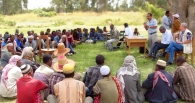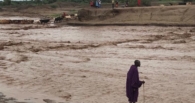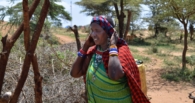Three curious calls on my time
Robin Palmer
6 May 2021
/
- 0 Comments
These are strange times currently as we all know, but I was very surprised recently to receive, quite out of the blue, three curious calls on my time.
Land, HIV and AIDS
On 11th March I received an email from Emma Gillies of the University of British Columbia. She and her team are looking into AIDS and its link to property grabbing in many parts of the world with a focus on Ebola and land grabs in Liberia. She wondered if I would be willing to share a bit of my knowledge on this topic. I said I knew almost nothing about Liberia, but I’d be delighted to! So I got digging through my archives and sent her about 25 items from it. The majority of things I’d saved on AIDS and land came from the period 2000-2008. I produced an 11-pager of key events, publications etc. which I sent her. We then had a zoom conversation on 27th March. I found looking back at this old material and reminding myself about the key issues involved quite fascinating.
The 2000s was a decade in which land reform was on the agenda – new land laws, policies etc. Some argued that privatisation was the answer to all problems. There was a recognition that the HIV/AIDS issue was a very serious one indeed and that things therefore needed to change radically at many levels. Land and AIDS were irretrievably linked. There was clearly a need for key actors to get their acts together – governments, donors, civil society organizations, NGOs etc – and to try to work together. Anyone could be affected, e.g. Kenneth Kaunda (Zambia’s first President) ‘admitted’ that one of his sons had died of AIDS.
One entry dated January 2006 noted: I attended the FAO sponsored workshop on Women’s Property Rights and Livelihoods in the Context of HIV and AIDS in Zambia.
“The intention was to bring a diverse range of people whom FAO’s Kaori Izumi had worked with previously (in Zimbabwe, Kenya and Uganda) on property grabbing from widows and orphans to talk about their experiences with the hope of inspiring Zambian organisations working in this area. The workshop provided every opportunity for this, as we listened to some extraordinary, extraordinarily brave, and powerful testimonies from widows, from orphans, and from a Ugandan woman living very positively with HIV. We heard too the horrific story of a Zimbabwean woman, fresh from a triumph at the high court, who came back to her legal home on Christmas Eve and was killed in front of her six year old grandchild. We heard quite appalling stories of greed, inhumanity and violence perpetrated against extremely vulnerable women. Despite the enormous challenges, we heard some really inspiring stories of resistance and strength by widows and orphans and of some really great work by organisations and individuals.”
I gave the opening address at this workshop:
“Kaori Izumi, as many of you here will know, has worked tirelessly on the issues of women’s land and property rights in Southern and Eastern Africa over many years, and it is largely due to her passionate commitment and energy that important meetings such as this and the others that have preceded it have taken place. With enormous energy she has helped individuals and organisations; she has galvanised the energies of her own organisation and that of others, including my own; she has mobilised donors, and lobbied governments and others at many levels in a tireless pursuit for justice for women’s rights, and particularly for the rights of those women who have suffered manifold discrimination as a consequence of the HIV/AIDS pandemic, which has so traumatised Southern and Eastern Africa.”
One of my greatest pleasures and privileges was to have worked as an Oxfam Land Adviser, with the late Kaori Izumi.
A Journal and Tobacco in Zimbabwe
On 15th March, I received an email from Maurice Hutton of the Journal of Southern African Studies. (I meant to ask him whether he was any relation to a hero of my childhood, the cricketer Len Hutton). He said that they were looking for someone to review a paper called Transformation of the Tobacco Industry in Zimbabwe. He added ‘Since it aligns well with your expertise, we wondered if you’d be able to help us out?’. This was a bit of a shock as it had been several decades since a journal last sought my opinion on anything! I replied that I used to smoke a lot of Zimbabwean tobacco when I was a student at the University College of Rhodesia and Nyasaland, but it that it has been 45 years since I last wrote something about Zimbabwean tobacco! But I discovered that I remembered how to write a short review. To show how alert I was I even pointed out a few typos!
Earth Day 2021: Amnesty International and Angola
On 21st March I received an email from Susan Kurr, Amnesty International UK’s Country Coordinator for South Africa, Lesotho, Eswatini & Zambia, and Regional Coordinator for Southern Africa. She asked whether I would be interested in participating in a webinar on Earth Day, 22nd April 2021. The topic was “Facing Famine – Crisis in the Gambos region of Southern Angola”. She said that the aim of the event was to focus attention on The Gambos region, where the pastoralist communities are in crisis as a result of the dual challenge of forced eviction from fertile lands and climate change.
Taking part would be Padre Pio, a human rights defender, spokesperson for the communities, and Amnesty’s researcher and campaigner for Southern Africa. He had produced the 2019 Amnesty report The End of Cattle’s Paradise. This report detailed the devasting impact land grabs have had on the communities: not only destroying livelihoods and a way of life that has existed for generations, but plunging families into poverty, pushing them to the brink of starvation. I discovered that the report has been posted on the Land Rights in Africa website!
She continued, ‘As a Global Land Rights Policy Specialist, with a particular focus on Southern and Eastern Africa, we would very much welcome your involvement in the event as we look to better understand land rights and hear any advice or direction you can give in terms of action and advocacy to support those being so catastrophically affected. We would be most grateful if you could find the time in the next few days to have a brief meeting with myself and John Stacey, our Country Coordinator for Angola, to discuss the event in more detail, and the possibility of you sharing your expert knowledge with our audience.’
This I duly did. I also responded, ‘A pretty grim report. Took me back to my Oxfam days in Angola in the early 1990s. Normally government officials would tell you that they really cared about ‘the people’, but in Angola they didn’t even pretend! I think it’s the most corrupt country I’ve ever been to.’
On the day, I was given a 10-minute slot, focussing on Southern Africa. I said that I had first started working on land back in 1964, on my PhD on Rhodesia. I told the audience that the Land Rights in Africa website was now 21 years old and in Mokoro space! I had started it back then because the technology was available and I had seen it as a place where I could disseminate arguments in favour of pro-poor land reform, publicise the work of civil society groups, and share good lessons and practice.
In my judgement working seriously on land takes time and requires both understanding the historical past and looking to the future. But most actors have only short-term horizons. It also requires passion and commitment. One of the key issues which was frequently ignored in advance was the problem of implementation. There were issues of cost, of capacity to implement complex laws and of course the question of political will.
Breaking white supremacy of land holdings in the white south has proved difficult.
Corruption crept in early in Zimbabwe and South Africa. Changing things legally has not been easy. Attacks on the urban poor and massive evictions has been a common theme. I have an Angolan T-shirt, Nao partam a minha casa – don’t tear down my house. Governments often seemed embarrassed by the very existence of the urban and rural poor.
As a pro-poor land activist one of the things which has hugely depressed me in recent years has been the virtual return to colonialism, in which the new African rulers have imitated their colonial predecessors in their arrogance towards the locals, especially pastoralists, and have called in outsiders, who supposedly know how to farm properly, to grab land, both urban and rural. Large speculative deals are done in secret. Money changes hands. Local civil society groups struggle to gain reliable information. Donors look the other way. The deeply corrupt Angola I saw in the early 1990s has in many respects been the role model for this, and now it is happening across the continent!
So, three curious calls on my time. Now it’s back to the allotment…



